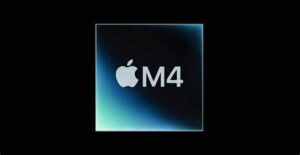Artificial Intelligence: La-La Land.
- The most abused term award at CES 2019 goes to artificial intelligence where almost everyone is using it but almost no one seems to know what it means.
- Senior execs are looking rather foolish at their press conferences having been told by their PR and marketing departments to ensure that they claim to use AI when, in reality, they are simply crunching statistics like almost everyone else.
- The real world of AI has been a lot quieter this year as progress against RFM’s three goals of AI (see here) has been extremely slow meaning that creating algorithms remains a slow and painful process.
- Furthermore, attempts at faking training data using simulations have been largely unsuccessful highlighting once again how fundamental the limitations on AI remain.
- Hence, almost all companies that say that they are using AI are in reality just using statistics meaning that they are not raising barriers to competition.
- Google, Baidu, Yandex and to some degree Microsoft have some real AI assets and are keeping their lead but even these companies continue to fall woefully short of something that could make their products groundbreaking.
- Hence, AI will continue to be a buzzword used by almost everybody, understood by almost nobody and delivers very little.
- AI has a long way to go before it will be a real differentiator in consumer electronics and services.
Digital Assistants: Amazon 2 – Google 1.
- The battle for supremacy in digital assistants enters its third CES and while Google has the upper hand in terms of numbers and advertising, Amazon wins CES 2019.
- Google’s stand is bigger than ever and there are more white-suited agents than last year, but Amazon is just everywhere.
- In 2017 and 2018 one could find Alexa on the stands of the exhibitors in the Sands and the South Hall where the smaller start-ups are to be found.
- This year, Alexa has made it to the big halls with all the device makers.
- Anyone buying a suite of white goods from Haier or many other major vendors will end up with more instances of Alexa than they could ever possibly use.
- Furthermore, many users who are buying a new vehicle will find Alexa integrated into the dashboard of the vehicle although not into the vehicle systems themselves.
- Only Byton drivers will be able to ask Alexa to roll down the windows, turn up the ac or set cruise control.
- This is important because although Google has a better product, Alexa is becoming more widespread, opening up the possibility of a repeat of the JVC / Betamax battle where the inferior product won out at the end of the day.
- I wonder what lengths Google will go to in 2020.
8K & 3D – 1-foot wonder.
- 8K TVs are finally here in volume but why anyone will pay a premium to own one is a big mystery.
- This is because unless one is 12 inches or less away from the panel it is almost indistinguishable from 4K.
- At 12 inches, 8K looks incredible but the average viewing distance in US is 9 foot from which I could not tell the difference.
- At 9 feet, even the difference between 1080p and 4K can be pretty marginal.
- Furthermore, the industry has already used its wide colour gamut and HDR tricks to sell 4K meaning that there is no meaningful difference in overall picture brightness or quality when comparing it to 4K.
- Consequently, I think that the TV makers are going to have real trouble selling 8K at a premium to 4K meaning that profitability is going to be a major problem.
- This is where 3D becomes interesting again because the extra pixels in 8K can be used to create an effective 3D image without glasses.
- Stream TV Networks is a technology that I have long watched and the more pixels that are present, the greater the 3D effect it can create without glasses.
- The 3D images it is creating on panels using 16m pixels (6K or 8K-lite) are a huge improvement on what it can do with 4K, meaning that true 8K should be even better.
- This is a valid use case as to why a consumer might pay up for an 8K TV but that will depend on consumers becoming excited about 3D TV once again.










Blog Comments
Harry Jay Alpert
January 10, 2019 at 1:49 am
We have made Streoscopic 3D production affordable. This will provide for significant content creation. The 3D format is gorgeous and the kids love it! The reboot of the 3D industry is upon us!
Jesse Skeen
January 10, 2019 at 4:46 pm
There are plenty of 3D fans out there even if they aren’t as many as the industry hoped. It’s ridiculous though that they would take 3D away altogether, rendering the over 500 3D Blu-ray titles out there (which I have most of) unusable on future TVs! I simply won’t buy another TV that can’t display them.